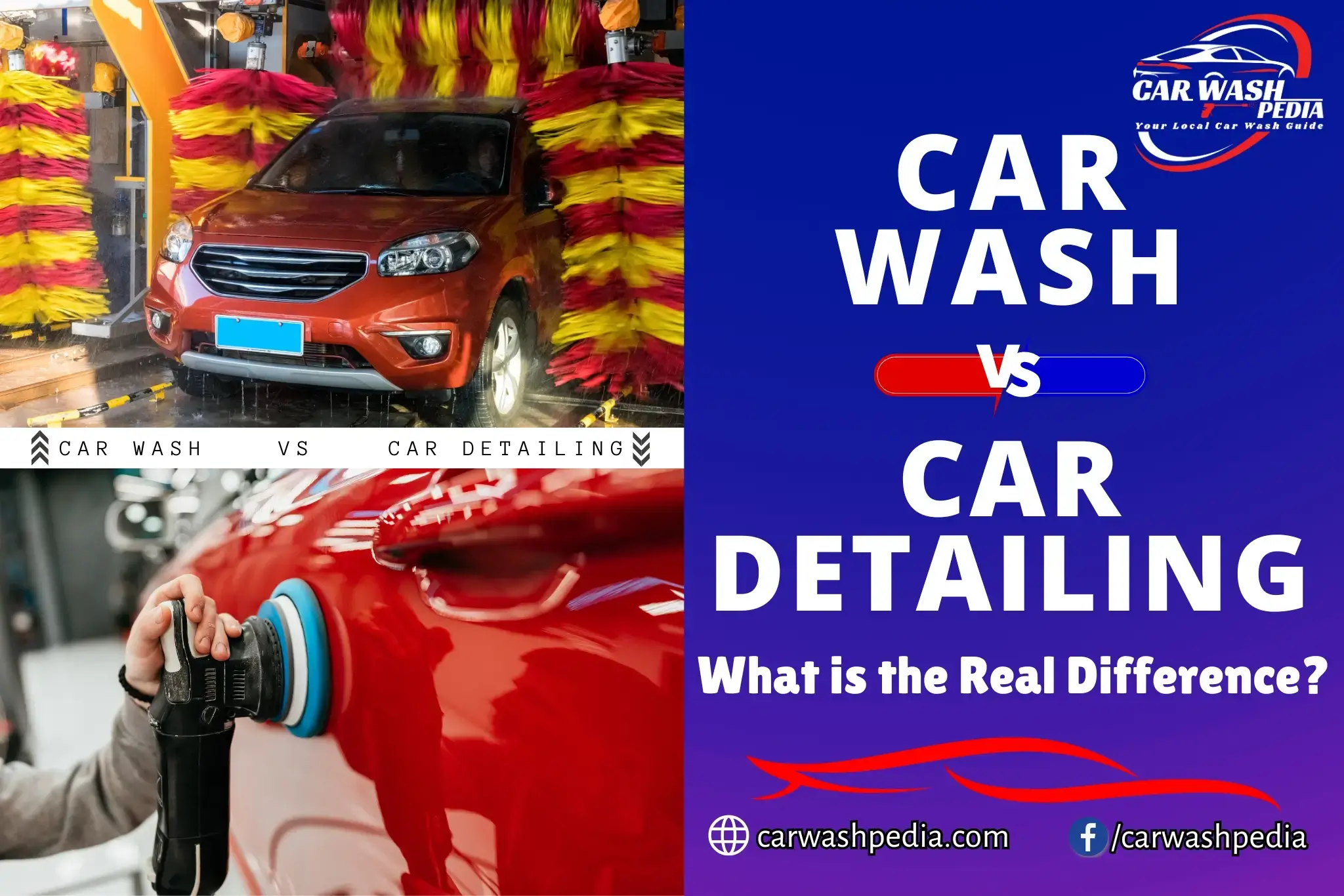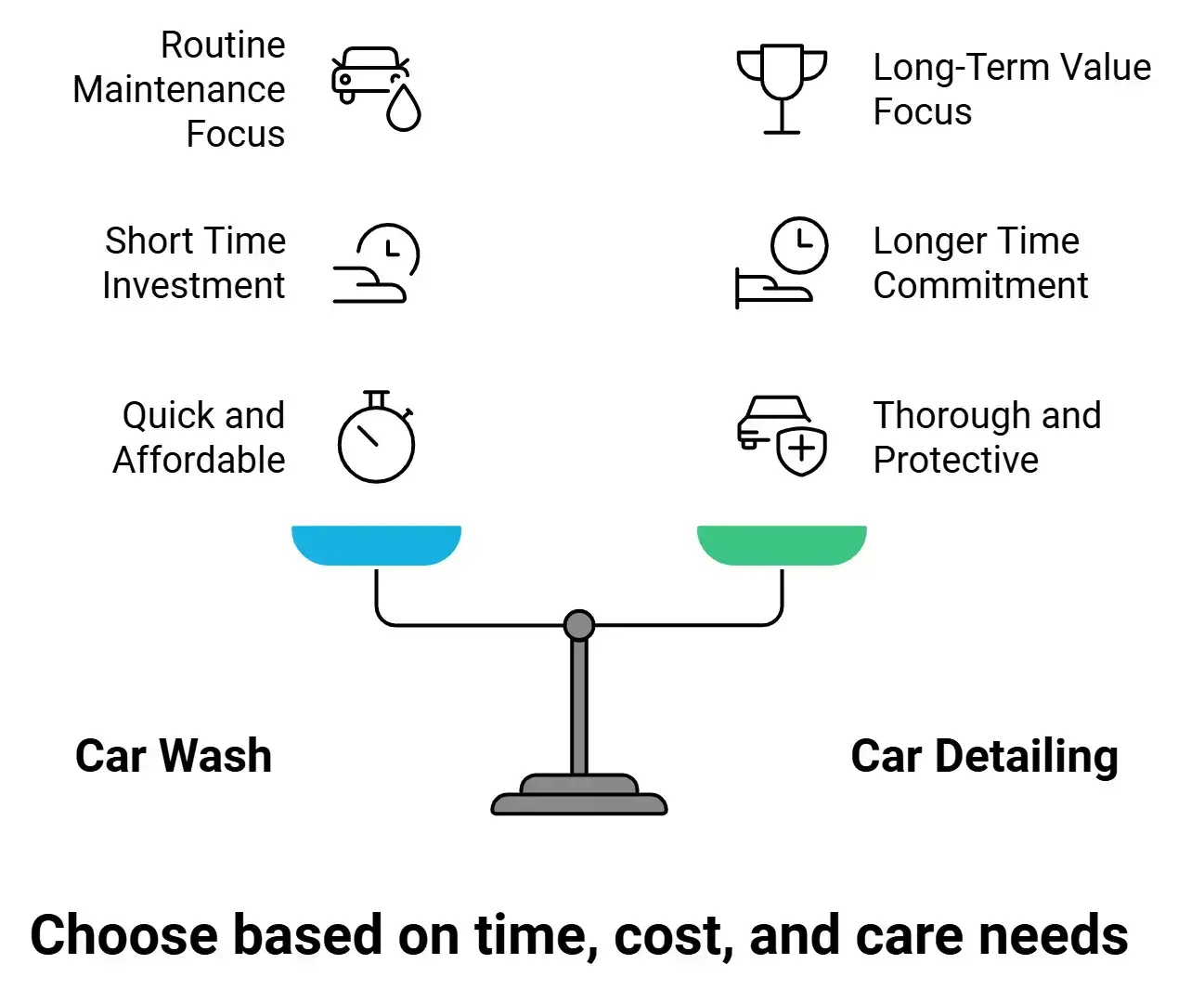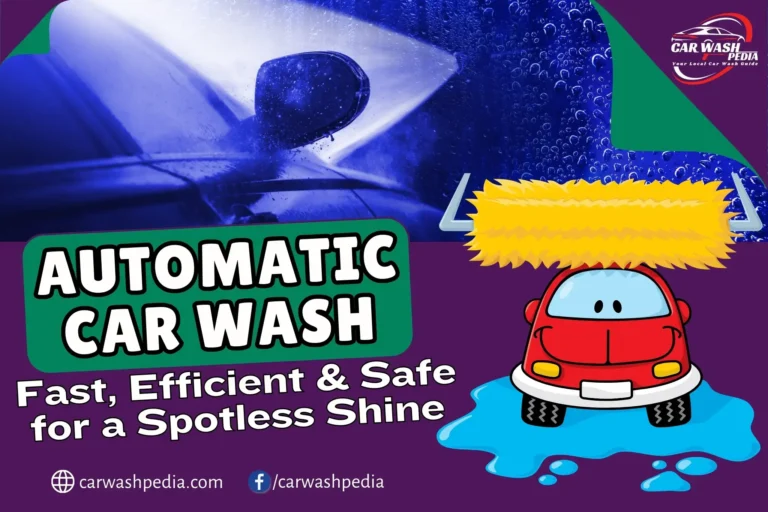Car Wash vs Car Detailing: What is the Real Difference?

Introduction to Car Wash vs Car Detailing
For car owners, keeping a vehicle clean and well-maintained goes beyond appearances. It is about preserving the car’s value, extending its life, and even making driving safer. Here, we will explore car wash vs car detailing to help readers understand what each service offers, when to choose one over the other, and how both can benefit a car in the long run.
Many people think car wash and car detailing are the same, but these services have distinct purposes and benefits. By the end of this article, readers will know exactly how car wash and detailing differ and which service might best suit their needs.
Why Knowing the Difference Matters for USA Car Owners
Understanding the difference between car wash and detailing is essential, especially in the USA, where road conditions, weather, and busy schedules can all impact car cleanliness and care needs. Knowing what service to use, and when, can save both time and money.
- Convenience: Automatic and touchless car washes are popular in the USA for their speed, but these options may not be enough for those who want a thorough cleaning or to maintain a car’s resale value.
- Climate Considerations: In the northern USA, winter brings road salt that can damage paint, making detailing especially useful to prevent corrosion. In the southern USA, sun exposure can fade paint, making wax and UV protection essential.
- Long-Term Savings: Choosing the right service can prevent costly repairs. For example, regular detailing can prevent paint damage, and interior detailing can help maintain upholstery quality.
Benefits of Car Wash and Car Detailing for Maintenance and Appearance
Both car wash and car detailing play important roles in keeping a car looking its best and running smoothly. Here is how each service can benefit USA car owners:
Car Wash Benefits
- Quick Exterior Cleaning: A car wash focuses on the exterior, helping to remove dirt, mud, and debris. It is an efficient way to keep a car looking fresh, especially for busy car owners.
- Protection Against Paint Damage: Regular car washing prevents dirt buildup and protects paint. This is especially important in regions with frequent rain, snow, or dust.
- Affordability: Car washes, especially automatic and self-service options, are generally budget-friendly, making it easy to maintain a car’s appearance without a large time or money investment.
Car Detailing Benefits
- Thorough Cleaning: Detailing includes not just the exterior but also the interior, with deep cleaning and specialized treatments for upholstery, leather, and carpets. This makes it ideal for keeping the inside of a car fresh and comfortable.
- Enhanced Appearance and Protection: Detailing goes beyond cleaning, adding layers of protection to paint and interior surfaces. This includes waxing and polishing, which help guard against UV rays, rust, and other damage.
- Increased Resale Value: Detailing helps a car hold its value. A well-maintained, clean interior and shiny exterior appeal to potential buyers, potentially boosting resale prices.
In summary, knowing the difference between car wash vs car detailing can help car owners make smart choices for maintaining their vehicles. Whether aiming for quick exterior upkeep or a complete clean-and-protect package, understanding these services empowers car owners to keep their vehicles in top shape.
What is a Car Wash?
A car wash is a service designed to quickly clean the exterior of a vehicle. The main goal is to remove dirt, dust, mud, and other debris that build up on a car’s surface from daily driving. Regular car wash helps protect the paint, reduce corrosion, and keep a car looking fresh.
In the USA, busy lifestyles make quick car wash options highly popular. Car washes are convenient, affordable, and often available through self-service stations or automated systems. They are an easy way to maintain a car’s appearance without investing much time or money.
Types of Car Washes in the USA
In the United States, drivers have several car wash options that range in convenience, cost, and impact on the vehicle. Each option is tailored to meet unique needs and preferences. Some are mentioned below.
Automatic Car Wash
- Speed and Convenience: Automatic car washes are popular because they’re quick and convenient. In a matter of minutes, your car goes through a series of brushes and water sprays that remove dirt from the exterior.
- Availability: They are found at many gas stations and dedicated car wash centers across the country.
- Best For: Quick and efficient cleanings that do not require the car owner to step out of the car.
Touchless Car Wash
- Protects Paint: Touchless car washes use high-pressure water jets and cleaning agents instead of brushes, which reduces the risk of scratching the paint.
- Chemical Cleaning: Since no brushes or cloths touch the car, the wash relies on stronger cleaning agents to dissolve dirt. This option is ideal for those who want to protect their car’s paint.
- Best For: People with new or recently detailed cars who want a safe, paint-friendly wash.
Self-Service Car Wash
- DIY Flexibility: Self-service car washes let you control the washing process using high-pressure water hoses and soapy brushes. You have the flexibility to clean your car as thoroughly or as lightly as you prefer.
- Cost-Effective: This option tends to be affordable and is perfect for drivers who enjoy washing their car themselves.
- Best For: Car owners who prefer hands-on cleaning and do not mind a little extra effort.
What is Included in a Typical Car Wash
A standard car wash service typically covers the exterior and may include:
- Body and Windows Cleaning: The primary focus is on the vehicle’s body and windows, where dirt and debris accumulate the most.
- Wheel Cleaning: Most car washes also include a quick rinse of the wheels, though it may not be as thorough as detailing.
- Drying: Many car washes have an automated drying feature to reduce water spots on the paint. However, drying methods can vary depending on the car wash type. Touchless options often use blow dryers, while some automatic washes rely on brushes.
How Much Time Does a Car Wash Take?
Car wash times vary by type, giving drivers flexibility based on their schedules and needs.
- Automatic Car Wash: Usually takes 3 to 5 minutes, making it the fastest option.
- Touchless Car Wash: This takes around 5 to 7 minutes, as it relies on chemicals and water pressure rather than brushes.
- Self-Service Car Wash: The duration depends on the car owner. On average, it can take 10 to 15 minutes, as you control each step.
Regular car wash is an effective way to maintain a car’s exterior appearance. From quick automatic washes to hands-on self-service options, USA car owners have plenty of choices to keep their vehicles clean and protected from the elements.
What is Car Detailing?
Car detailing provides a deeper clean than a regular car wash. It is a meticulous, in-depth cleaning and rejuvenating process focused on restoring both the interior and exterior to near-new condition. Unlike a basic car wash, which primarily addresses surface dirt, detailing is about enhancing a car’s appearance and preserving its value.
In the USA, car detailing has grown in popularity due to its long-term benefits. Regular detailing not only improves the look of a car but also protects its surfaces from wear and environmental damage, making it especially useful in regions with harsh weather.
Types of Car Detailing Services
Exterior car detailing and interior car detailing are the two main types of car detailing. Each has specific steps and benefits.
Exterior Detailing
- Polishing and Waxing: Exterior detailing includes polishing to remove minor scratches and oxidation. Wax is then applied to protect the paint from sun, rain, and dust.
- Paint Protection: Special treatments like ceramic coating or paint sealant can be applied to shield the paint from fading and chipping.
- Headlight and Glass Treatment: Detailing often includes cleaning and polishing headlights, taillights, and all glass surfaces to ensure clarity and prevent yellowing over time.
- Wheel and Tire Care: Wheels and tires are scrubbed to remove brake dust, grime, and road salt. This step may also include tire dressing to give them a dark, polished look.
Interior Detailing
- Deep Cleaning and Deodorizing: Interior detailing involves a deep cleaning of all interior surfaces, including the dashboard, console, and seats. Special cleaners are used to remove stains, odors, and dust from upholstery and carpets.
- Upholstery Care: For cloth seats, this means steam cleaning and shampooing. For leather seats, conditioners and leather protectants are used to prevent cracking and fading.
- Detailed Attention to Small Areas: Every area, from air vents to seat crevices, is cleaned meticulously to leave no dust or dirt behind. It is this level of care that makes car detailing different from regular cleaning.
- Odor Removal: Special deodorizers and ozone treatments can eliminate stubborn smells, leaving the interior fresh and pleasant.
What is Included in a Car Detailing Service
A complete detailing service usually follows a step-by-step process to thoroughly clean and protect each part of the car.
- Exterior Washing: The car is hand-washed to remove surface dirt without scratching the paint. This often includes foam cannons or special mitts for a gentle but thorough clean.
- Waxing and Polishing: After washing, polish is applied to smooth the paint, followed by a wax or sealant for protection and shine.
- Interior Vacuuming and Cleaning: Carpets, seats, and mats are vacuumed, then deep cleaned with steam or shampoo to remove dirt, stains, and odors.
- Polishing of Interior Surfaces: Dashboard, door panels, and other plastic or leather areas are cleaned and polished, making the interior look refreshed.
- Glass Cleaning: Windows and mirrors are cleaned to a streak-free shine, improving visibility and aesthetics.
- Final Touches: Wheels, tires, and any chrome details are given final care, ensuring every detail of the car looks as good as new.
How Much Time Does Car Detailing Take?
A typical car detailing session takes several hours, depending on the car’s condition and the level of detailing chosen. On average, a basic detail can take about 2-3 hours, while a full detail, especially with paint correction or special coatings, may take 4-6 hours or more.
How Often Does Your Car Need Detailing?
For optimal protection, most experts recommend detailing every 3-6 months. Yet, how often you detail your car can depend on where you live, the weather, and your driving routine.
- Every 3 Months: Ideal for those who drive frequently, live in harsh climates, or want to maintain a showroom-like appearance.
- Every 6 Months: Suitable for moderate use and standard environmental exposure, helping to protect the car while keeping costs manageable.
- Once a Year: Minimal recommendation, particularly for cars that are driven infrequently or are stored indoors.
Car detailing provides a deeper, more protective clean compared to a standard car wash, and it is essential for car owners who want to maintain both the look and value of their vehicle. By detailing regularly, USA drivers can extend their car’s lifespan and enjoy a pristine, like-new appearance year-round.
Comparing Car Wash vs Car Detailing
Purpose and Benefits
- Car Wash: Quick and Budget-Friendly Exterior Cleaning: A car wash is designed to remove surface dirt and grime quickly and at an affordable cost. It is ideal for routine cleaning to maintain your car’s exterior look. Most car washes focus on the outside only, making it a practical choice for drivers who need a quick, hassle-free clean. Automated and self-service car wash options are especially convenient, letting you get back on the road fast without a major expense.
- Car Detailing: Long-Term Protection and Aesthetic Improvement: Car detailing provides a more thorough clean than a regular car wash. The process includes a thorough cleaning, both inside and out, with additional steps like waxing, polishing, and interior care. Detailing does not just make a car look better; it protects the paint, interior surfaces, and engine from wear and tear, weather, and contaminants. Detailing services offer long-term protection, making them a valuable investment for car owners who want to maintain or even increase their vehicle’s value over time.
Time and Cost Comparison
- Car Wash: Generally Faster and Cheaper: A standard car wash takes anywhere from 5 to 30 minutes, depending on the type (automatic, self-service, or touchless). The cost is relatively low, ranging from a few dollars for a basic wash to around $15-20 for premium options with extras like wax or underbody rinse. The quick turnaround and low cost make it easy to fit a car wash into a busy schedule without breaking the bank.
- Car Detailing: Longer Process, Higher Cost: Car detailing, in contrast, is a more thorough and time-intensive process, often lasting between 2 to 6 hours depending on the level of detail chosen. Prices vary widely, but basic packages typically start at around $75 and can go up to $200 or more for comprehensive services. Some premium detailing services, which include high-end treatments like ceramic coating or paint correction, may cost even more. The investment is higher, but for car owners who prioritize their vehicle’s appearance and longevity, detailing provides superior value over time.
Which Option is Better for Your Needs?
- For Routine Maintenance: Car Wash: If you are looking for a regular cleaning solution to maintain your car’s cleanliness and appearance, a car wash is the way to go. This option is perfect for USA drivers who want to keep their cars looking good without investing a lot of time or money. A basic wash every few weeks can help keep dirt and road salt from accumulating, which is especially helpful in winter or rainy regions.
- For Long-Term Protection and Enhanced Appearance: Car Detailing: For those who want to go beyond surface-level cleaning and give their car a like-new look, car detailing is a better choice. Detailers focus on protecting the paint, maintaining the interior, and even polishing up the engine bay in some cases. Detailing services are recommended every few months for maximum impact, making it a great choice for car owners who take pride in their vehicle’s appearance and longevity.

Cost Comparison: Car Wash vs Car Detailing in the USA
Average Cost of a Car Wash
Car wash prices in the USA vary depending on the type of wash. Here is a quick breakdown:
- Automatic Car Wash: Generally costs between $5 and $15 for a basic wash. Most automatic car washes offer a range of packages, where adding features like wax, undercarriage cleaning, or high-pressure rinses can increase the price to $20 or more.
- Touchless Car Wash: Slightly more expensive, usually ranging from $8 to $20. Touchless washes avoid direct contact with your vehicle’s surface, reducing potential scratches or damage, which is beneficial for protecting the paint.
- Self-Service Car Wash: Typically costs $2 to $10, depending on the time spent using the equipment. Self-service stations allow drivers to manually wash their vehicles, offering flexibility in cleaning without the higher price tag.
Average Cost of Car Detailing
Breakdown of Exterior and Interior Detailing Costs
Car detailing involves a much more in-depth process than a standard car wash, leading to a higher price. Here is a breakdown of typical costs:
- Exterior Detailing: Usually costs between $50 and $150. Exterior detailing includes a comprehensive wash, wax, and often polishing to remove minor scratches. Some packages may include additional services like clay bar treatment and ceramic coating, which can drive prices up to $500 or more for premium options.
- Interior Detailing: Costs range from $60 to $200. This service includes deep cleaning of seats, carpets, mats, and all other interior surfaces. High-end packages may also offer leather conditioning, stain removal, and odor treatment.
- Full Detailing Package: For a complete detailing package (both exterior and interior), prices typically range from $100 to $300, but luxury or specialty detailing can push this cost to $500 or even higher.
Factors Affecting Detailing Costs
Detailing prices are not one-size-fits-all; several factors can influence the final cost:
- Location: In urban areas or regions with a high cost of living, detailing services tend to be more expensive. Areas with limited competition may also see higher rates.
- Car Size: Larger vehicles, such as SUVs and trucks, usually cost more to detail than smaller cars, as they require more time and materials.
- Service Level: Basic detailing packages cover essential cleaning, while premium options include advanced services like paint correction, ceramic coating, or deep stain removal. The car detailing pricing is directly proportional to the detailing service quality.
This comparison helps USA car owners make an informed decision based on their budget and maintenance needs. A car wash might be ideal for regular upkeep, while detailing is perfect for those wanting a deeper, long-lasting clean.
When to Choose a Car Wash over Car Detailing
Car owners often wonder when to opt for a simple car wash instead of going all-in with a detailed cleaning service. A standard car wash can be a smart choice depending on certain needs and situations. Here is when to go for a quick car wash instead of the full detailing treatment:
Quick Exterior Clean After Muddy or Dusty Conditions
- After Heavy Rain or Snow: A standard car wash is ideal after a rainstorm or snow, when roads are muddy and can leave cars coated in dirt and road salt. A quick wash removes these residues, protecting the paint from corrosion and buildup.
- Following Off-Road Trips or Dusty Drives: After a road trip or outdoor adventure, especially on dirt or gravel roads, a quick car wash helps remove dust and debris. This light cleaning keeps your car looking fresh without requiring the time or cost of a full detailing.
For Regular Maintenance and Upkeep
- Weekly or Bi-Weekly Washes for a Clean Look: Routine car washes are a practical way to keep a vehicle looking clean and well-maintained. Many car owners in the USA follow a regular wash schedule to prevent dirt buildup and maintain the car’s shine.
- Preserving Resale Value with Routine Care: Regular exterior washes prevent long-term dirt accumulation, protecting the car’s paint and resale value. Basic washes are an affordable way to ensure a car’s exterior stays in good condition over time, minimizing future detailing costs.
When Budget or Time is Limited
- Quick Solution for Busy Schedules: For those with packed schedules, a car wash offers a fast, convenient option. A typical automated wash takes under 10 minutes, making it ideal for anyone looking to refresh their vehicle quickly.
- Affordable Alternative to Detailing: Car detailing can be pricey, with premium packages adding up. A standard car wash is a more budget-friendly option, allowing car owners to maintain a fresh appearance without the higher expense of detailing.
In these cases, a car wash meets immediate needs and keeps the vehicle looking neat until there is time or budget for a more comprehensive detailing service. It is a flexible and cost-effective option, particularly suited for frequent maintenance in the USA.
When to Choose Car Detailing over a Car Wash
Knowing when to invest in a full car detailing session rather than a quick car wash can make a big difference in the look and longevity of your vehicle. Here are some of the most common situations where car detailing is the better choice:
When Selling Your Car or Preparing for a Special Event
- Boosts Resale Value: A professional car detailing service can add appeal to a vehicle before selling, making it look as good as new. Detailed cleaning, polishing, and waxing enhance the appearance, which can help increase the resale price.
- Great First Impressions: If you are preparing your car for a special event or business gathering, car detailing can make your car look impressive, showing a commitment to upkeep and cleanliness.
After Winter or Exposure to Salt and Harsh Elements
- Protects Against Salt Damage: In many parts of the USA, roads are salted in winter to prevent ice. This salt can quickly corrode metal parts if left on the vehicle. Car detailing after winter helps remove these harmful residues.
- Recovers from Sun and Dirt Damage: Prolonged exposure to the sun and dust can dull paint and damage the interior. Car detailing restores the car’s surface with polishing and waxing, which helps prevent fading and wear over time.
When the Interior Needs a Thorough Cleaning or Detailing
- Deep Interior Cleaning: Unlike a basic car wash, detailing services include vacuuming, shampooing, and cleaning every corner inside the vehicle. This is particularly useful if you have stains, pet hair, or allergens embedded in the upholstery.
- Eliminates Odors: Over time, cars can absorb unpleasant smells from food, pets, or smoke. Car detailing tackles these odors at the source, often using deodorizing treatments to freshen up the interior.
- Restores Comfort: For those who spend long hours in their car, a thoroughly cleaned and refreshed interior can make drives much more pleasant and comfortable.
In each of these cases, car detailing offers a more thorough and longer-lasting clean that a simple car wash cannot match. For drivers who want to protect their car’s value, improve its look, or maintain a clean interior, car detailing is the best choice.
DIY Options for Car Wash vs Car Detailing
For car owners who enjoy hands-on care or want to save money, DIY car wash and detailing can be appealing options. But each approach has unique requirements, pros, and cons that are worth understanding.
DIY Car Wash
Pros and Cons
- Pros: DIY car washes are cost-effective, convenient, and allow control over the cleaning process. You can choose specific products and techniques, ensuring your car’s surfaces are treated gently.
- Cons: DIY car wash can be time-consuming and messy. Without the right equipment, it may be hard to achieve a truly spotless result. Water usage, especially in dry states, can also be a concern.
Equipment Needed
- Bucket and Hose: Essential for rinsing and washing. Many opt for a hose with adjustable pressure settings.
- Soap and Mitt: Use a car-specific soap and a microfiber wash mitt for a gentler clean that does not strip wax.
- Drying Cloth: A microfiber cloth or chamois helps avoid water spots, leaving the car streak-free.
Tips for Best Results
- Rinse thoroughly before applying soap to avoid scratching.
- Always use a separate cloth for wheels to prevent brake dust from scratching paint.
- Dry in shaded areas to avoid streaks and water spots from sun exposure.
DIY Car Detailing
Possible but Requires Time, Knowledge, and Materials
- DIY car detailing is possible but involves a more comprehensive process than a basic wash. It requires specialized tools and materials for both interior and exterior work. Additionally, it takes time and effort to learn proper techniques for polishing, waxing, and upholstery cleaning to avoid accidental damage.
Materials Needed
- Interior Cleaning Supplies: Vacuum with attachments, brushes for tight spaces, upholstery cleaner, and odor eliminators.
- Exterior Tools: Clay bar for removing contaminants, polisher for restoring shine, and high-quality wax or sealant for protection.
Is DIY Detailing Worth It?
- While cost-effective, DIY detailing is a big commitment. For those willing to invest the time, it can be satisfying and save money. However, achieving professional-level results requires practice, patience, and the right tools.
Professional Car Wash vs DIY Car Wash: Cost-Effectiveness, Convenience, and Results
- Cost-Effectiveness: DIY options generally cost less over time but require an upfront investment in equipment. Professional car washes are affordable for quick, routine cleaning, while professional detailing is more costly due to the intensive labor involved.
- Convenience: Professional services save time and effort. DIY may take longer, but you have full control over the products and methods used.
- Results: Professional detailing often achieves the highest level of clean and polish. However, a careful DIY approach with the right techniques can deliver satisfying results, especially if you enjoy taking care of your car personally.
DIY car wash can be an enjoyable, cost-effective choice, but professional services bring expertise and convenience. Ultimately, the decision comes down to personal preference, budget, and how much time you are willing to invest in your car’s care.
Pros and Cons of Car Wash and Car Detailing
Understanding the advantages and limitations of both car wash and car detailing services can help you make informed decisions about your car’s care. Let’s break down the pros and cons of each option.
Car Wash Pros and Cons
Pros of a Car Wash
- Quick and Convenient: Car washes are fast and efficient, typically taking just a few minutes. This is ideal for busy individuals who need a quick clean-up on the go.
- Affordable: Basic car washes are affordable and budget-friendly. With prices as low as a few dollars at some automatic and self-service stations, they are a cost-effective way to maintain your car’s appearance.
- Easily Accessible: Car wash locations are abundant across the USA. Many neighborhoods have at least one drive-thru or self-service wash, making it easy to keep your car clean without much hassle.
Cons of a Car Wash
- Limited to Exterior Cleaning: A standard car wash usually focuses only on the exterior. It cleans the surface, windows, and wheels but does not address interior dirt or deep grime.
- Minimal Long-Term Benefits: While a car wash removes surface dirt, it does not offer long-term protection for paint. Services like waxing, polishing, and interior cleaning are often excluded, leaving parts of your car vulnerable over time.
- Potential for Surface Scratches: Automated brushes or cloths in some car washes can cause light scratches on paint, especially if dirt and debris are trapped in the bristles.
Car Detailing Pros and Cons
Pros of Car Detailing
- Comprehensive Clean: Car detailing covers both interior and exterior, providing a thorough, all-around clean. Detailing removes stubborn grime from every corner of your car, inside and out.
- Enhanced Appearance and Protection: Detailing services like waxing, polishing, and applying protective coatings help protect your car’s paint, preserving its shine and guarding against the elements.
- Value Boost: A detailed car often has better resale value. When selling your car, having it detailed can make a strong impression, often translating into a higher selling price.
Cons of Car Detailing
- Time-Consuming: Detailing is a meticulous process that can take several hours to complete. It is less convenient for those with tight schedules or who need a quick clean.
- More Expensive: Due to the labor-intensive nature and specialized products used, car detailing services are significantly more expensive than a regular wash. The costs can add up, especially for frequent detailing.
- Requires Maintenance for Lasting Benefits: To keep your car looking its best, detailing should be done periodically. For lasting paint protection and interior freshness, most experts recommend detailing every 3 to 6 months.
In summary, a car wash is a fast, cost-effective way to keep your car’s exterior clean. It is ideal for regular upkeep when you are short on time or have a limited budget. Car detailing, on the other hand, provides a deeper clean, both inside and out, offering long-term benefits in terms of appearance and protection. While detailing is more time-consuming and costly, it is perfect for those looking to protect their vehicle’s value and shine.
FAQs about Car Wash vs Car Detailing
Is Detailing Necessary if I Regularly Wash My Car?
While regular car washes help maintain your car’s cleanliness, detailing goes beyond surface cleaning.
- Purpose of Detailing: Detailing involves deep cleaning, polishing, and protective treatments, addressing areas that car washing may miss. This extra attention helps keep the paint looking new, reduces the risk of rust, and protects your car’s interior from stains and wear.
- Long-Term Benefits: Detailing extends the life of your car’s paint and upholstery. It is especially useful if you want to keep your car in top shape for a longer period or plan to sell it in the future.
How Long Does Car Detailing Last?
The results of car detailing typically last several months, but this can vary based on factors like driving conditions, climate, and upkeep.
- Duration of Protection: Generally, exterior detailing, including waxing and polishing, offers paint protection for up to three to six months. Some high-end ceramic coatings may last even longer, providing protection for a year or more.
- Interior Care: Interior detailing, when done with high-quality products, can protect leather and fabric seats from stains and wear for several months, depending on usage. Regular interior maintenance helps extend the benefits.
Can I Detail My Car Right After a Car Wash?
Yes, detailing can follow a car wash, and many people start the detailing process with a thorough wash.
- Clean Slate for Detailing: Starting with a clean car allows detailers to focus on polishing, waxing, and other treatments without interference from surface dirt or dust.
- Importance of Drying: Make sure your car is fully dried after the wash to avoid water spots or streaks. Professional detailers often use microfiber towels and air dryers to ensure the surface is perfectly clean and dry before detailing begins.
Is Detailing Safe for All Car Types and Ages?
Yes, detailing is generally safe and beneficial for almost all car types and ages, but there are a few considerations.
- Older Vehicles: For older vehicles, detailing can help restore the paint’s appearance, remove scratches, and clean up oxidation. However, the paint and interior materials might be more fragile, so it is best to consult a professional who knows how to handle vintage cars.
- New Cars: Detailing is ideal for new cars as well. Many new car owners choose detailing for additional protection to preserve their car’s fresh appearance. Treatments like ceramic coatings and interior fabric protectants are popular among new car buyers to maintain a pristine look.
Conclusion: Car Wash vs Car Detailing – What is Best for You?
Choosing between car wash and car detailing comes down to your car’s needs, your budget, and what you want to achieve. Let’s summarize when to choose each option, so you can make an informed decision that keeps your car looking its best.
Summarize Key Points: When to Choose Each Option
- Car Wash: If you are looking for a quick and affordable way to remove surface dirt and dust, regular car washes are ideal. They help maintain a clean exterior without a significant time or cost commitment.
- Car Detailing: When you need deeper care, detailing is the best choice. It goes beyond a basic wash, addressing interior stains, exterior scratches, and long-term protection for paint and upholstery. Detailing is particularly beneficial if you plan to sell your car, want to protect it from seasonal elements, or simply enjoy a pristine appearance.
Consider Your Car’s Needs, Budget, and Goals
When deciding between car wash and car detailing, think about what matters most:
- Needs: If you drive regularly through dusty or muddy areas, more frequent car washes may be enough. But if you are dealing with harsh winters or extreme sun, detailing can provide added protection.
- Budget: Routine car wash is generally inexpensive and quick. Detailing, though costlier, offers added value with deep cleaning, conditioning, and protection that help preserve your car’s value.
- Long-Term Goals: For those looking to maintain their car’s appearance and protect its resale value, a combination of regular car wash with occasional detailing is ideal. Detailing every few months helps maintain that “like-new” look and can prevent long-term wear.
Routine Car Wash with Occasional Detailing for Optimal Care
For the best results, consider a balanced approach:
- Schedule Regular Car Washes: Plan routine washes to keep your car’s exterior clean and prevent buildup of dust and grime.
- Opt for Detailing Every Few Months: Depending on your driving conditions and climate, schedule detailing every 3-6 months. This routine will keep your car’s paint, upholstery, and other surfaces protected and looking fresh.
Finding the right mix of car wash and car detailing ensures your car remains in excellent condition, providing you with pride of ownership and maximizing its longevity and resale value.
You can explore more comparative analysis here:
Hand vs Touchless Car Wash: Ultimate Guide for Better Protection
Car Waxing vs Ceramic Coating: Which is Best for Your Car?






